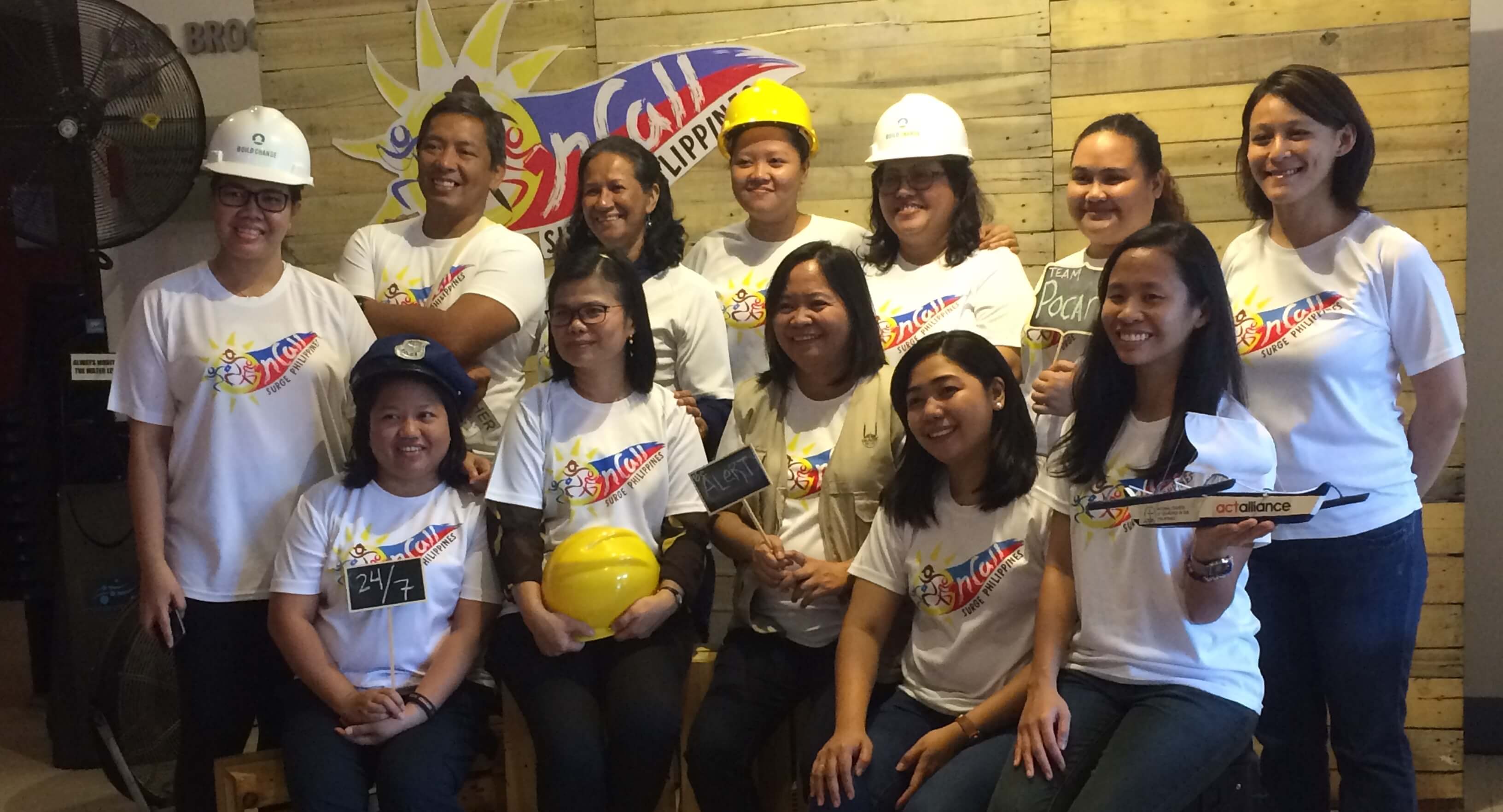This case study, produced on International Women's Day 2017, focuses on two women from the Philippines, one of the world’s most disaster-prone countries.
Women are among those most affected by disasters and so women as change-makers are needed to identify the needs of women in emergency areas and support them to assert their rights.
With humanitarian needs growing continuously and resources for response being increasingly squeezed, humanitarian NGOs need to find ways to provide relief more efficiently. Transforming Surge Capacity is a three-year project under the Disasters and Emergencies Preparedness Programme, led by ActionAid, coordinated by the Start Network and funded by UK aid.
The project aims to pilot localised and collaborative approaches to surge response, i.e. the ability of a humanitarian actor to scale up (and down) swiftly in an emergency response. It brings together 11 international humanitarian organisations and is implemented through collaborative platforms in Pakistan, the Philippines and the Asia region. Joint rosters have been established at all three platforms with the aim to use local emergency response capacity more efficiently. The project also pilots innovative approaches to working with other groups such as UN agencies, government and the private sector. Good practice and learning on surge practices is shared through the project.
What has this project achieved?
The project has set up three shared rosters of humanitarian responders: one in Pakistan, one in the Philippines, and one covering the wider Asia region. On Call, the Philippines roster, has so far registered 30 organisations from civil society and professional associations, and has 340 individual roster members. Many work for local and national NGOs that were involved in the response to Typhoon Haiyan and witnessed the downsizing of emergency programmes as that crisis receded. On Call enables them to join a pool of humanitarian responders who can be deployed to support the emergency responses of local, national or international organisations anywhere in the country.
Clemetine's story
Clementine has recently joined On Call and is contributing her experience from the Haiyan response, where she led gender analysis research for Oxfam and worked as the Gender Officer in the organisation’s recovery programme for two years.
On the importance of having women as change-makers: “Surge response is traditionally male-dominated. The first step is to allow women into that space, as they are more affected by disasters.”
On Clementine's positive experience being a change-maker: “Partnering with women’s organisations in the first 100 days after a disaster has been transformative, as women have been able to identify what they need in reproductive health, a topic they never talked about. It’s empowering for the women’s rights groups to identify their needs and design the way they want to deliver their own solutions.”
Ivy's story
Ivy is the Coordinator for Special Projects of the Urban Poor Associates and has recently joined On Call. She is contributing her experience from the Haiyan response to the roster, where she mobilised fishermen’s wives in San Jose, Tacloban City, one of the areas hit hardest by the typhoon. She educated them about their rights to access to relief and helped them demand support from the government and facilitate access of international aid to the area.
On the importance of having women as change-makers: “The role of women in humanitarian response is vital, as they know exactly what the family needs. Women affected by disasters are also the most vulnerable, especially when they are pregnant or lactating. As a woman responding to a disaster, the needs of the affected women is very close to my heart.”
On Ivy's positive experience being a change-maker: “With our interventions we were able to mobilise women and educate them about their rights. They were able to march together with their husbands and to convince the councillors to allow international organisations to provide shelter kits. Now in Tacloban, women are the community leaders who have set up community gardens, enterprises and savings groups.”
Read more about the Disasters and Emergencies Preparedness Programme.
Read more about the Transforming Surge Capacity project.
Read more about On Call, the Philippines roster.
International Women's Day 2017.
Photo credits: ActionAid

